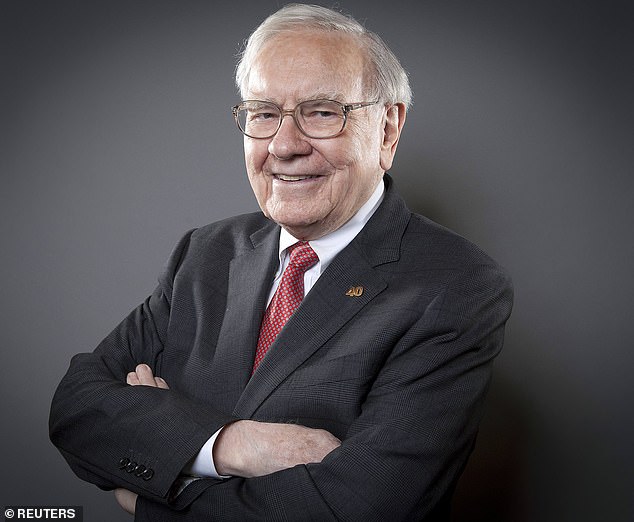My colleague Alex Brummer has written ruefully about how he missed out on millions of pounds by spurning advice to invest with Warren Buffett in the 1980s.
His decision not to buy shares in Buffett’s Berkshire Hathaway conglomerate was perfectly reasonable at the time.
It’s just bad luck he is not now luxuriating on his yacht – though if he were, his readers and colleagues would have missed out.
His story shows the importance of luck in our lives – an element that, in developed, rich societies like ours, we often underestimate. We prefer to credit our successes to our own abilities and to blame ourselves or others for failures.
Admitting the role played by luck and that we have less control over outcomes than we like to imagine, brings realism, and modesty. These are undervalued assets in business, investment and politics.
But a healthy level of humility is one of the qualities that made Buffett the greatest ever money manager. Much has been written about his investment philosophy in the days since he announced he is stepping down as chief executive. Less has been said about the idea of the ‘Ovarian Lottery’ that, according to his official biographer Alice Schroeder, shapes his views on life.

Sage of Omaha: Warren Buffett’s ideal is a society where those blessed with luck in the gene pool draw are free to succeed and where they help, rather than punish, the less fortunate
The thesis is: imagine you are about to be born 24 hours from now.
A genie has given you the power to write the economic rules of the society you are about to enter. There’s a catch. You’re not being born into your current life. Instead, your life will be allocated by drawing a lottery ball out of a barrel containing 8bn of them, one for every person on the planet.
Therefore, you don’t know whether you will be born male or female, healthy or sick, a genius or a fool.
You might come into the world as the son of rich American parents, or a girl in a village in Afghanistan.
So what kind of society do you create, given there is a far greater chance you will be a loser than a winner in the great Ovarian Lottery?
Buffett is frank about the part that luck has played in his success.
At the time of his birth, the odds were 30-to-1 against being born in the United States. He was fortunate again in being born a white male, and with a brain wired to make him a great investor.
That talent is very highly prized and rewarded in our society, but it is not universally valued. As fellow billionaire Bill Gates says, if he and his friend Buffett had been born three million years ago, their investment skills would have been worthless.
Bespectacled and lacking athleticism, they can’t run fast or climb trees. They would not have ended up rich, but as an animal’s lunch.
Buffett’s ideal is a society where those blessed with luck in the gene pool draw are free to succeed and where they help, rather than punish, the less fortunate.
This worldview is very different from Donald Trump’s boastful and transactional universe, where ‘winners’ take all and ‘losers’ are trampled.
Trump does not acknowledge his great good luck at being loaned $1m by his father to set up in business and appears to see the presidency as his by right.
The aggression he shows to other countries through his tariff policy is anathema to Buffett, who believes that the more prosperous the rest of the world becomes, the richer and safer Americans will be.
If only the reckless occupant of the White House would listen to the Sage of Omaha.
DIY INVESTING PLATFORMS

AJ Bell

AJ Bell
Easy investing and ready-made portfolios

Hargreaves Lansdown

Hargreaves Lansdown
Free fund dealing and investment ideas

interactive investor

interactive investor
Flat-fee investing from £4.99 per month

InvestEngine

InvestEngine
Account and trading fee-free ETF investing
Trading 212
Trading 212
Free share dealing and no account fee
Affiliate links: If you take out a product This is Money may earn a commission. These deals are chosen by our editorial team, as we think they are worth highlighting. This does not affect our editorial independence.
This article was originally published by a www.dailymail.co.uk . Read the Original article here. .

